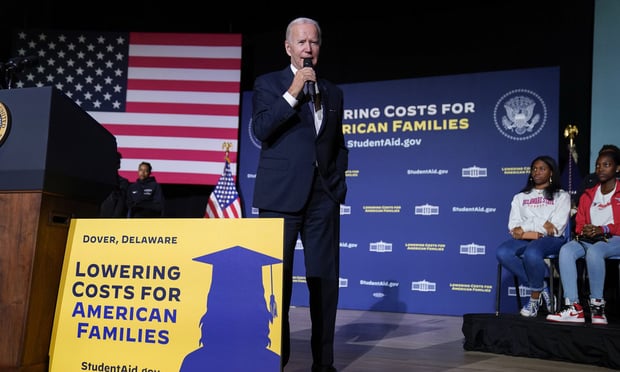Advisors, beware—as if your job weren't complicated enough in the midst of a crashingeconomy and a pandemic, you'll have to keep an eye on yourclients lest they panic and do something stupid in what may seemlike the end of the economy.
|It's not as if people don't normally make mistakes anyway, buttrying to function under the sort of stress many people are feelingcan cause all sorts of bad decisions—meaning that it might be agood time to brush up on your behavioral economics training to keepclients from financially self-destructing.
|A financial wellness survey from KeyBank highlights some of theblunders people have admitted to making when dealing with theirfinances—before the coronavirus pandemic hit—and being forewarnedabout such ventures down the wrong road as stress weighs on theirbetter judgment might help you turn clients back onto the rightpath before there's too much damage done.
|After all, says the report, "Even though 75 percent of Americansconsider themselves financially savvy, more than half (54 percent)admit to making a financial faux pas in the past year." Just thinkhow much worse it might get as those stuck abroad after what wassupposed to be a dream vacation struggle to get home at any cost,or people confined at home sit at their computers and shop, shop,shop for "emergency" supplies no matter the price tag.
|Interestingly, one faux pas considered the second most severefinancial mistake a person can make did not make the top 10 list ofcommon mistakes by survey respondents—so either they know better oraren't 'fessing up to it: mismanaging debt.
|Below you'll find 10 common mistakes they could make in the daysahead. Good luck!
|10. Being afraid to check an account balance.
Eleven percent of people confess to the old head-in-the-sandploy, but of course that doesn't make the problem go away—it simplyallows it to lie there and fester until maybe it's unfixable.
|9. Not making retirement contributions.
While 12 percent of Americans admit to being guilty of this,it's actually considered to be the top financial mistake, sinceeven 33 percent of respondents to the survey consider it to be themost severe financial error they could make.
|8. Paying for unused subscription services.
Twelve percent of people admit to paying for stuff theyapparently signed up for but then never had the inclination toactually use them—gym memberships, streaming services,subscriptions, "insurance" plans on purchases—and really ought tobe paying more attention to where their money goes. Just cuttingthese things off could amount to a surprising amount of cash eachyear.
|7. Not investing money.
Since interest rates now are barely above zero, anybody whosimply stuck money (I'm talking to you, 15 percent ofsavers-not-investors) into a regular old savings account isn'tgoing to get much return for their savings efforts. Still, they maybe too busy feeling relief for not having lost their shirts as injust the last several days the stock market gave up all its gainssince the beginning of the Trump administration, so you might notwant to be too hard on them.
|6. Missing a credit card payment or carrying a balance on acredit card.
Either one is going to cost the 15 percent of people whoconfessed to doing so—whether in finance charges from month tomonth until that balance is gone, or in higher interest rates fromnow on for having missed a payment.
|5. Spending a tax refund instead of saving it.
Fifteen percent of respondents confessed to frittering away themoney they got back from the IRS. Considering that the deadline fortax returns has been extended this year, if they were counting onspending this one too, they may have a long wait ahead.
|4. Spending beyond their means.
Seventeen percent of Americans confess to this, and it can getat least some of them into real trouble—particularly now, when manyhave no idea where their next paycheck is coming from—or when.
|3. Not saving for an emergency.
Here's a common problem—just not thinking far enough ahead aboutpossible pitfalls to be able to set aside money "just in case." Wehave one of the biggest "just in case" situations in historyhappening all around us, and the 18 percent who didn't anticipateeven a flat tire or broken water heater are liable to findthemselves in an even larger world of hurt. Incidentally, thesurvey classes this as one of the top 3 financial mistakes, on ascale of 1 to 10.
|2. Not sticking to a budget.
It can be tough to stay the course once you've broken downnecessary expenses and discretionary spending, but 21 percent ofAmericans admit that they just haven't managed to do it.
|1. Impulse buying.
A sizeable portion of the U.S. population admits to having donethis, with 25 percent confessing that they didn't take the time oreffort to weigh their options on something they bought.
|READ MORE:
Complete your profile to continue reading and get FREE access to BenefitsPRO, part of your ALM digital membership.
Your access to unlimited BenefitsPRO content isn’t changing.
Once you are an ALM digital member, you’ll receive:
- Critical BenefitsPRO information including cutting edge post-reform success strategies, access to educational webcasts and videos, resources from industry leaders, and informative Newsletters.
- Exclusive discounts on ALM, BenefitsPRO magazine and BenefitsPRO.com events
- Access to other award-winning ALM websites including ThinkAdvisor.com and Law.com
Already have an account? Sign In
© 2024 ALM Global, LLC, All Rights Reserved. Request academic re-use from www.copyright.com. All other uses, submit a request to [email protected]. For more information visit Asset & Logo Licensing.









